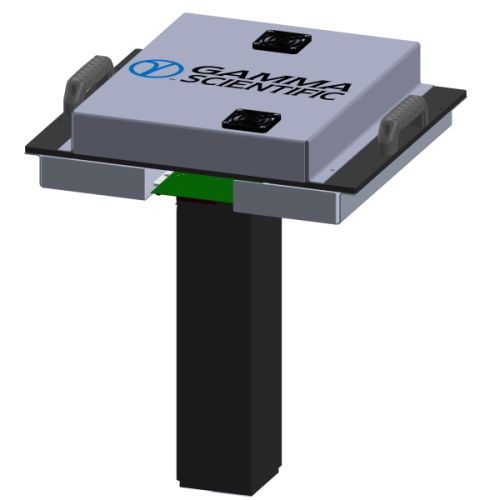A new digitally programmable, color tunable, calibrated light source from Gamma Scientific is a turnkey, drop-in addition to commercially available systems for wafer level testing of CCD and CMOS sensors. Specifically, the RS-7-4 SpectralLED™ Tunable
LED Light Source bolts directly on to existing image sensor testers from manufacturers such as Teradyne and National Instruments, and can also be readily adapted to test head manipulators and handler instrumentation custom built by end users.
(Gamma Scientific/ LEDinside)
It can then be easily programmed to deliver virtually any arbitrary spectral power distribution of visible light, for example, reproducing the output of black body sources and various standard CIE illuminants, over a wide range of output luminance. This enables rapid automation for accurate characterization of detector dynamic range, uniformity, linearity and spectral responsivity, and also facilitates identification of pixel defects.
The flexible and agile RS-7-4 offers numerous advantages over traditional calibration light sources for image sensor testing, such as tungsten halogen incandescent bulbs. For example, the LED-based RS‑7‑4 offers a substantially longer calibrated, stable lifetime than tungsten sources, which are notoriously unstable over their relatively brief operational lifetimes. Plus, the color temperature and spectral power distribution of the RS-7-4 can be rapidly varied through software control, and the output is extremely linear over its entire output range. None of this is true of tungsten bulbs.
The RS-7-4 also delivers better performance than competitive LED-based systems. In particular, it utilizes a larger number of discrete LED channels to enable more accurate reproduction of a specific illuminant. It also uses highly stabilized DC drive current circuitry, rather than pulse width modulation (PWM), to vary output luminance. This is critical when testing high speed silicon detectors, which can easily time resolve PWM signals, thus causing measurement errors.












